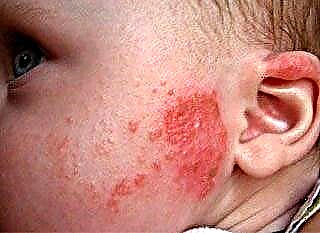It is difficult to find a product that can compare in its usefulness to honey. Since the days of the emergence of beekeeping, both traditional healers and doctors never tire of repeating about the advantages of honey as a medicine. It can be used both individually and in combination with other components - juices, infusions, broths. Honey has taken a solid position among the healing natural products, and we should give it its due - honey medicines justify such an opinion about themselves. Can they help to treat inflammation of the nasal mucosa? When will honey for a cold help the best?
Action for a cold
Traditional medicine specialists devote a lot of time to studying the beneficial properties of honey. There are many recipes based on this product, intended for both external and internal use.

Treatment of rhinitis with honey should be carried out deliberately. All people are different, and the body's reactions to any foods are also different. But it is better to refuse honey medicines:
- with allergies;
- with metabolic disorders.
While honey is healthy, it is also one of the most common allergens. An allergic reaction, as a rule, reveals itself completely suddenly, but at the same time it can be very difficult. In addition, treatment requires care from people who have diabetes. When ingested, it is necessary to calculate how much of the product the patient can eat without harm to the body.
You also need to pay attention to the type of rhinitis. If symptoms are caused by a cold, honey is an excellent adjunctive treatment. But if the patient is faced with allergic rhinitis (especially if allergic to pollen), has injured the nasal mucosa or suffers from vasomotor rhinitis, you need to choose another medicine.
External use
Honey medicines for external use with a cold are, as a rule, a variety of drops. It should be understood that the use of drops in the form of drops implies direct contact with the inflamed mucous membrane, so you should not add aggressive components (saturated saline solution, vinegar, etc.) to them.
- With the addition of onions.
Take half a teaspoon of honey, 3 teaspoons of finely chopped onions, stir. Pour 50 ml of warm water, soak for half an hour, drip into the nose three times a day, 3 drops.
- With water.
Dissolve a teaspoon of honey in half a glass of water. Lubricate the inside of your nose with a cotton swab three times a day.
- Rinsing.
Gargling is good for a runny nose too. Dissolve honey (a teaspoon) in a glass of warm water, process the throat up to 5 times a day.
Treatment with honey for a cold lasts for three to four days.
The water should not be hot; even if there is no allergy to the components of the funds. If you experience severe burning after using the onion recipe, rinse your nose quickly and discontinue the procedure.
If the reaction to honey medicine is unknown, it is advisable not to drip it, but first lubricate one nostril and evaluate the sensations.
Ingestion
Honey medicines for oral use have been used by traditional medicine for a very long time.
- Healing mixture.
Take a teaspoon of honey, mix with a few drops of lemon, wash it down with a little warm water, or suck in the mouth. Repeat several times a day.
- Onion mixture.
 Chop the onion, mix a teaspoon of gruel in equal proportions with honey, take three times a day.
Chop the onion, mix a teaspoon of gruel in equal proportions with honey, take three times a day.
- Immunity stimulant.
Take rose hips, raspberry and currant leaves (a tablespoon of each ingredient), brew in a thermos like tea. Drink with honey throughout the day.
Honey remedy has a general tonic effect, but does not allow to achieve quick elimination of nasal congestion. Therefore, if the nose is not breathing at all, discuss with your doctor the appropriate symptomatic methods and medications (rinsing, vasoconstrictor drops).
Precautionary measures
When choosing therapy with bee products, you need to pay attention to the precautionary rules:
- Treatment with honey cannot be a reason to refuse other remedies.
If the attending physician talks about the need to rinse the nose, use antiseptics, immunomodulators, it is worth assessing the harm in refusing these methods and medicines in favor of honey alone.
- The onset of allergy symptoms requires discontinuation of treatment until the cause is clarified.
If the patient has not previously used honey, but decided to treat a cold with its help, he may face unpleasant phenomena - itching, lacrimation, increased edema. It is not always the case with honey, but since this product is a likely allergen, it is better to suspend procedures using it.
You should not use honey medicines without clearing the nasal mucosa in advance by rinsing with saline - otherwise it will be very difficult to achieve the effect.
The response to traditional medicines can vary, so home treatment should be treated with caution. To minimize the risk of adverse effects, it is best to consult with your doctor beforehand.



